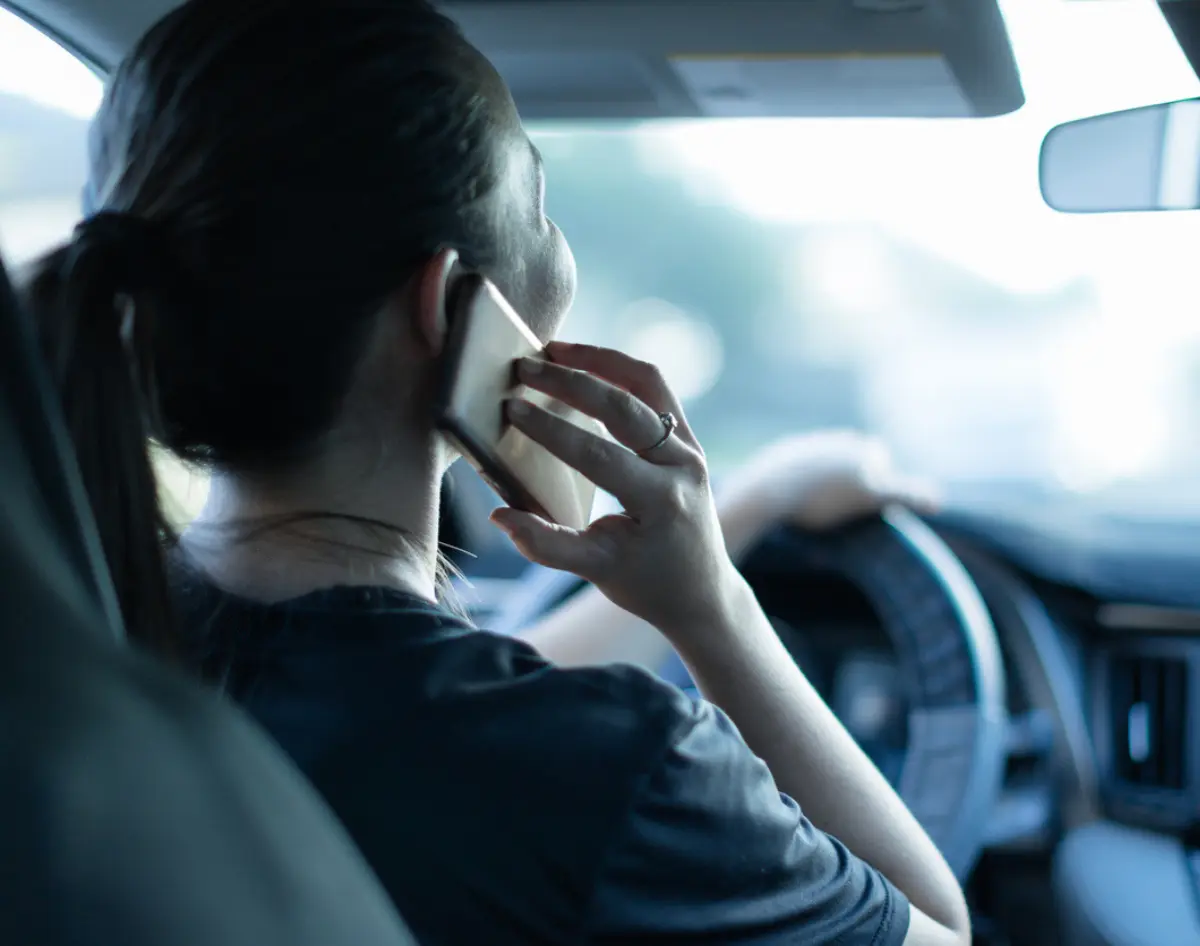How To Get A Cell Phone Ticket Dismissed

In today's fast-paced world, the use of cell phones while driving is more prevalent than ever. However, it can also lead to significant legal repercussions, including fines, points on your driving record, and even higher insurance premiums. At Trbovich Law Firm, in Buffalo, NY, we understand how stressful and confusing these situations can be. This article aims to provide valuable insights into how to get a cell phone ticket dismissed and offers important guidance as you navigate this legal challenge, hopefully with the help of a traffic ticket defense attorney.
Understanding the Cell Phone Ticket
A cell phone ticket in New York is typically issued for violations of Vehicle and Traffic Law (VTL) § 1225-d, which prohibits the use of portable electronic devices while driving. This law applies to handheld devices such as cell phones, tablets, and certain other electronics. The fines associated with a cell phone ticket can range from $50 to $200 for a first offense, with additional costs for subsequent violations.
Different Types of Cell Phone Tickets & Their Associated Fines
In Buffalo, there are several types of cell phone tickets associated with the use of electronic devices while driving. Each violation carries specific fines and additional penalties. Understanding these different types of cell phone tickets can help you navigate the legal landscape if you find yourself facing such a charge. Here’s a breakdown of the various types of cell phone tickets and their associated fines:
1. Use of a Handheld Device
- Description: This ticket is issued when a driver uses a handheld mobile device for any purpose, including talking, texting, or using apps while operating a vehicle.
- Fine: For a first offense, the fine ranges from $50 to $200. Subsequent offenses within 24 months can result in fines of $100 to $400.
2. Texting While Driving
- Description: This violation is more specific and targets drivers who use their mobile devices to send or read text messages, emails, or social media posts while behind the wheel.
- Fine: The fines for this offense are similar to those for using a handheld device, starting at $50 for a first offense, escalating to as much as $400 for multiple offenses.
3. Use of a Portable Electronic Device
- Description: This broader category encompasses not just cell phones, but also tablets and other similar electronic devices used while driving, which can include browsing the internet or using apps.
- Fine: The fines mirror those of handheld device violations, starting at $50 for the first offense, with increased penalties for repeat offenders.
4. Failure to Wear a Seatbelt While Using a Cell Phone
- Description: If a driver is stopped for using a handheld device and is also found not wearing a seatbelt, they may receive a ticket for both violations simultaneously.
- Fine: In this case, the fines will vary based on the severity of each violation. The seatbelt ticket itself carries a fine of about $50, which would be added to any fines associated with the cell phone use.
5. Junior Driver Violations
- Description: For junior license holders (drivers under the age of 21), using any electronic device while driving is a more severe violation. This is designed to discourage young and inexperienced drivers from distractions while on the road.
- Fine: The fines for junior drivers are higher, ranging from $100 to $300, with potential points added to their driving record.
Additional Considerations
- Points on License: In addition to the monetary fines, violators may also incur points on their driving record. The accumulation of points can lead to increased insurance premiums and, in some cases, license suspension.
- Impact on Insurance: Most insurance companies view cell phone tickets seriously, and having one on your record could result in a surge in your insurance rates.
Exceptions
There are specific exceptions to the strict cell phone laws while driving. Below are the key exceptions:
- Emergency Situations: Drivers can use their cell phones to call 911 or emergency services during a crisis.
- Hands-Free Devices: Using a Bluetooth or hands-free device is permitted, as long as the driver does not physically handle the phone while driving.
- Vehicle is Parked: Drivers can use their cell phones when the motor vehicle is parked in a designated area, not just idling in traffic.
- Navigation Aids: Utilizing navigation apps is acceptable if done through hands-free methods and without manual engagement.
- Local Exceptions: Buffalo may have specific local policies that affect how cell phone laws are enforced, which can vary based on local law enforcement practices.
- In-Car Technology Systems: Drivers can use in-car technology that integrates with their phones safely, as long as it minimizes distraction.
Understanding these exceptions can help drivers navigate potential penalties. If you face a cell phone ticket and believe your situation qualifies for an exception, consulting a qualified lawyer is advisable. Trbovich Law Firm is here to assist you in understanding your rights and options.
DWAI Cell Phone Tickets In Buffalo

In New York, the legal landscape surrounding distracted driving, particularly when it involves cell phone use, presents serious consequences. Here are some key differences in penalties and implications for standard cell phone tickets versus those classified under Driving While Ability Impaired (DWAI):
- Cell Phone Ticket (Without DWAI Classification)
-
- Fines: Ranges from $50 to $200 for first-time offenders.
- Points on Driving Record: Up to 5 points, which can lead to higher insurance premiums.
- Consequences: Increased insurance rates and potential impacts on driving privileges for repeat offenders.
- DWAI Cell Phone Ticket (With DWAI Classification)
-
- Fines: Increased fines ranging from $300 to $500.
- Points on Driving Record: Up to 8 points, significantly impacting insurance rates.
- Consequences: Possible license suspension, higher likelihood of jail time, especially for repeat offenders or if an accident occurs.
The distinction between a standard cell phone ticket and a DWAI classification is crucial, and with a DWAI ticket, will likely change strategies on how to get a cell phone ticket dismissed. A DWAI-related charge indicates that the driver’s ability to operate their vehicle is compromised due to distraction, heightening the risks associated with driving. Given the bustling nature of cities like Buffalo, understanding these differences is essential for promoting safer driving practices.
At Trbovich Law Firm, our DWAI defense lawyers advocate for safe driving and are committed to guiding individuals through the legal complexities associated with distracted driving charges.
How Get A Cell Phone Ticket Dismissed
1. Hire a Traffic Ticket Lawyer
When it comes to traffic violations, having capable legal representation can significantly influence the outcome of your case. Buffalo, with its bustling streets and busy roadways, often presents distractions that can lead to unintentional cell phone violations. Working with a legal professional familiar with the local cell phone laws and court systems, like our attorneys at Trbovich Law Firm, can be a game changer. They can offer tailored strategies on how to get a cell phone ticket dismissed.
2. Assess the Ticket and Circumstances
The first step in how to get a cell phone ticket dismissed is to carefully review the ticket itself. Examine the details including the date, time, and location of the alleged violation. Did the officer accurately record your license plate and any other information? Miscommunications or errors can provide a strong basis for dismissal.
Buffalo is home to numerous intersections and highways, including the Erie Basin Marina and the bustling Elmwood Village. If your traffic ticket was issued in these areas, remember that local traffic patterns and behaviors can play a role in your case.
2. Gather Evidence
Collecting evidence may strengthen your case if you plan to contest the ticket. Some useful evidence may include:
- Photographs: If there were no signs indicating restrictions on cell phone use or if there were others engaging in similar behavior nearby, take photographs to support your claims.
- Witness Statements: Consider gathering statements from friends or observers who can attest to the circumstances during your driving. A friendly face from the local community, such as someone from Delaware Park, can make your case more personal and relatable.
3. Consider Possible Defenses
Having a strategy for your defense is crucial. Some common defenses against cell phone tickets in Buffalo include:
- Not Using the Device: If you were not actively using your a wireless communications device, you can argue against the allegation. Perhaps your phone was in your bag or resting in a cup holder, and you were merely reaching for it, but did not actually use it while driving.
- Emergency Situations: If you were using your phone to respond to a genuine emergency, this can sometimes serve as a valid defense.
- Inaccurate Measurement: In some cases, officers may misjudge whether a driver was using a cell phone. Your traffic ticket attorney can help establish the validity of this claim.
4. Attend Traffic Court
Once you've formulated a defense, you’ll need to attend traffic court. In Buffalo, traffic violations are typically adjudicated in the Buffalo City Court. Be punctual and present a professional demeanor in court. Make sure to bring all pertinent documentation and evidence to support your case.
During your appearance, you will have the opportunity to present your evidence and arguments. If you've been working with a lawyer, they will handle the presentation on your behalf, allowing you to remain focused and composed.
Get Help From An Experienced Attorney Today
If you’ve received a cell phone ticket in Buffalo, don’t navigate this legal challenge alone. At Trbovich Law Firm, our dedicated team of traffic lawyers is here to help you understand your rights, understand cell phone laws, and explore your options for how to get a cell phone ticket dismissed or reduced. Contact us today for a free consultation, and let us work together to protect your driving record and peace of mind.

